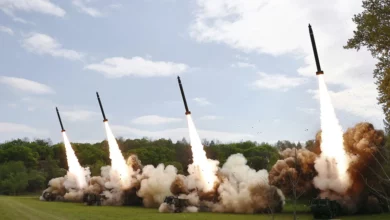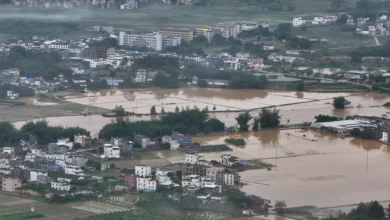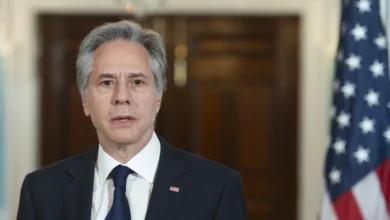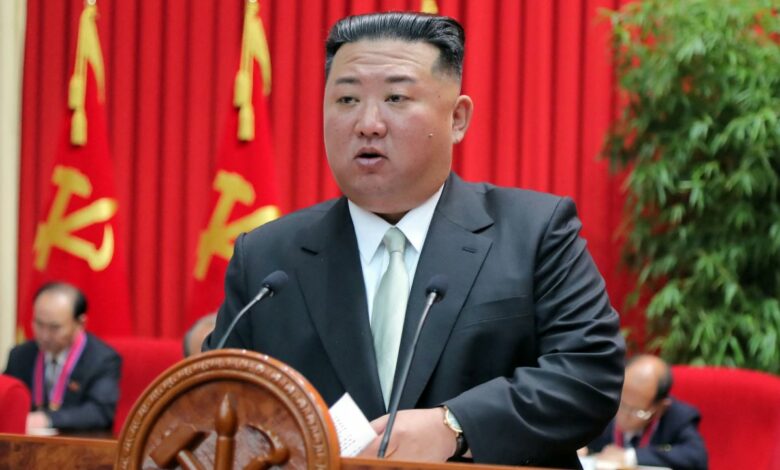
As war in Ukraine grinds toward its third year and fighting in Gaza inflames a broader crisis across the Middle East, global security observers are keeping a close watch on another part of the world – North Korea, where Kim Jong Un’s latest provocations are raising questions about his military intentions.
In recent weeks, the leader has brushed aside decades of his country’s policy toward South Korea – now proclaiming that North Korea would no longer seek reconciliation and reunification with the South and calling for it to be classified as their “permanent enemy.”
North Korea “does not want war, but will not avoid it,” Kim declared at a political gathering last month, according to state outlet KCNA.
If war came, the country’s goal would be “occupying, suppressing and reclaiming the Republic of Korea and subjugating it into the territory of the republic,” he said, referring to South Korea by its official name.
The sweeping policy shift in the nuclear-capable country has come alongside a volley of weapons tests, the shelling of a maritime buffer zone, and calls from Kim for North Korea to accelerate war preparations in response to “confrontation moves” by the US.
Together the developments are drawing international concern – and debate among seasoned observers – about the intentions of the leader at the heart of the country’s secretive regime.
“We do not know when or how Kim plans to pull the trigger, but the danger is already far beyond the routine warnings in Washington, Seoul and Tokyo about Pyongyang’s ‘provocations,’” prominent experts Robert Carlin and Siegfred Hecker wrote in North Korea-focused publication 38 North last month. Kim, they suggest, has “made a strategic decision to go to war.”
Many other observers disagree – arguing that the 40-year-old leader knows well that any major military move against South Korea and its ally the United States could hasten the demise of his own regime.
But those observers too are bracing for a year of ramped up aggression – and express concern about the risk of North Korea’s escalated hostilities leading to some kind of military engagement on the Korean Peninsula, raising the risk, however remote, of nuclear conflict.
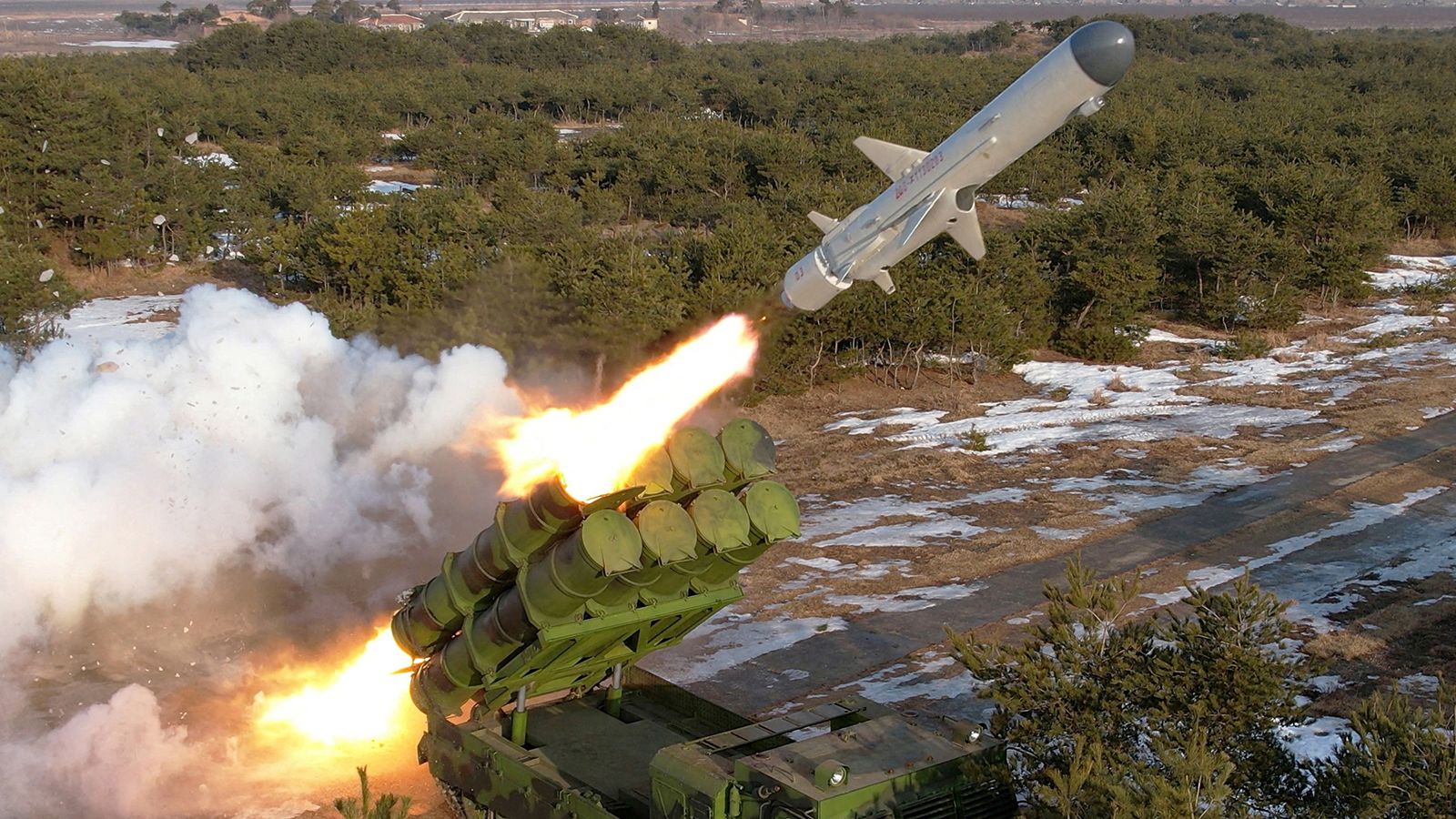
“The situation on the Korean Peninsula has entered a very critical phase,” said Eul-Chul Lim, director of the North Korea Research Center at Kyungnam University’s Institute for Far Eastern Studies (IFES) in Seoul.
“Given the high level of mutual tension, there is a possibility of accidental conflict due to misunderstandings, misjudgments, and misperceptions” – even if Kim likely sees “little political or economic benefit” in war, he added.
Kim is known for his provocations and has signaled in recent years a coming policy shift on South Korea.
But experts say the changes now are likely driven by Kim’s mounting concerns as South Korea and the United States ramp up military drills and coordination – and his newfound confidence in a shifting geopolitical climate that has drawn Pyongyang closer to a key partner, Russia.
The changes also coincide with an election year in the US, where President Joe Biden seeks a second term while managing multiple global crises. Kim is likely watching carefully – and may be keen to see him replaced by predecessor and candidate Donald Trump.
A major shift
For decades, governments on both sides of the divided Korean Peninsula have maintained they were members of the same family with the ultimate goal of peacefully reunifying. The two sides have been cut off from each other since 1953, when an armistice ended the Korean War, and remain technically at war.
“(Kim Jong Un) is now saying that South Korea is no longer viewed as another Korea. South Korea is viewed as a completely foreign power,” said Edward Howell, a lecturer in politics at the University of Oxford in the United Kingdom, who focuses on the Korean Peninsula.
Reclassifying South Korea as an enemy state, experts say, allows Kim to justify the continued build-up of his nuclear and missile arsenal – and hold it over Seoul, which has adopted a harder line against Pyongyang under President Yoon Suk Yeol.
Despite heavy international sanctions, Kim has continued to build that arsenal in recent years, focused on developing weapons able to strike not just South Korea and Japan but the US territory of Guam and the American mainland – capabilities he sees as essential to deterring a potential attack and ensuring the survival of his regime.
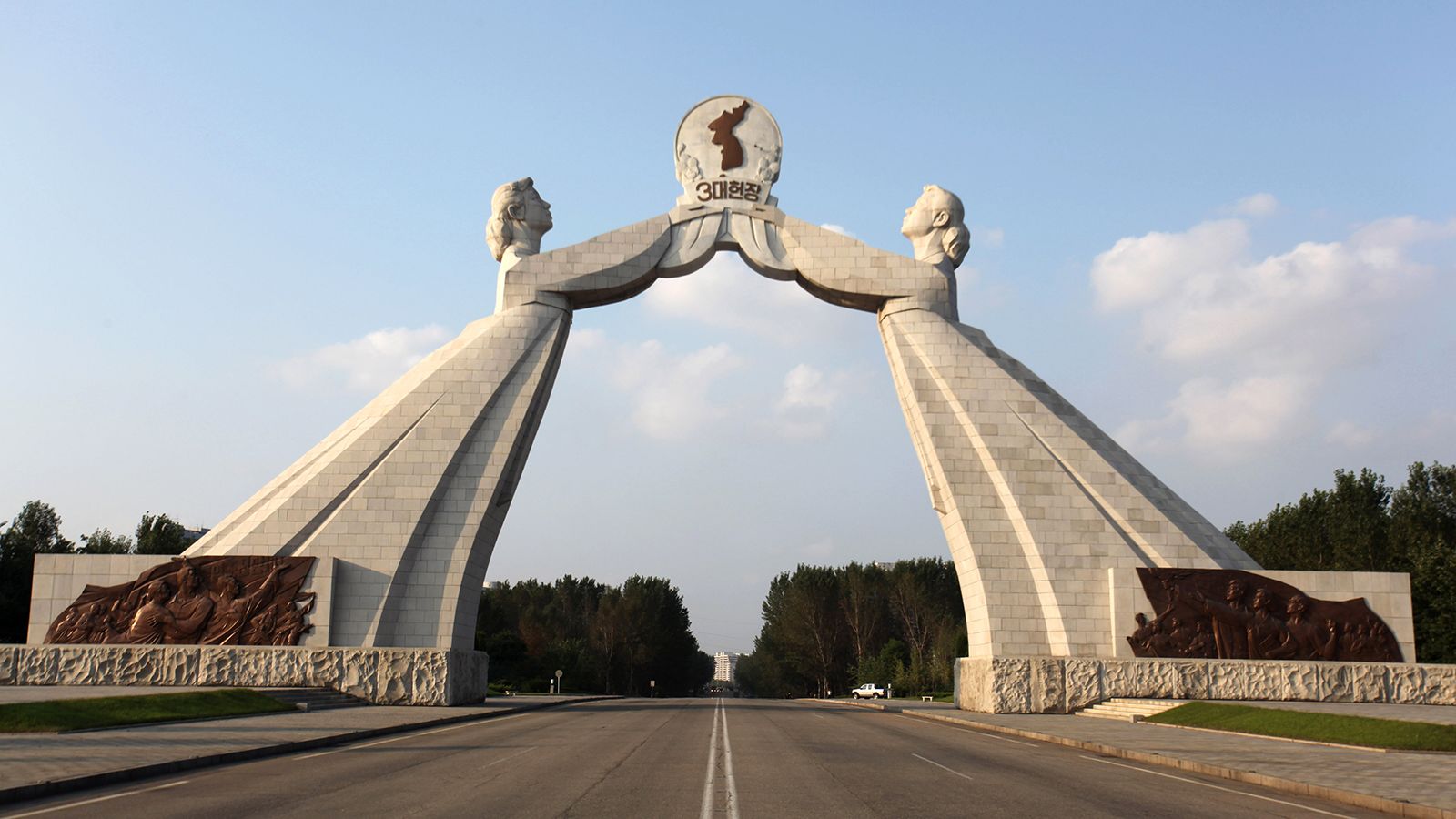
Since 2022 Kim has reiterated that the principle point of his nuclear arsenal is “to deter war,” but also raised the potential for nuclear weapons to be used to counter efforts to violate the North’s “fundamental interests.”
He’s also become increasingly alarmed by strengthened ties between the US and South Korea.
Yoon and Biden have sharpened their countries’ deterrence plans and coordination in the face of North Korea’s threats and weapons development. That’s included expanding joint drills in the region and security cooperation, including with Japan – all of which Kim sees as a threat to his regime.
The “progress” by South Korea and the United States on deterrence “is one of the major reasons that Kim Jong Un feels very frustrated,” according to Won Gon Park, a professor in the department of North Korean studies at Ewha Womans University in Seoul.
Kim has been explicit about these concerns. Last month he said that “instability of the regional situation is soaring due to the US-led escalation of military tensions,” and that while Pyongyang doesn’t want war the “danger” of its outbreak “has considerably aggravated,” according to KCNA.
Kim’s policy shift on South Korea may also be linked to a view that negotiations with the US are no longer a viable path to meet goals of being recognized as a nuclear state and receiving sanctions relief.
Pyongyang has rebuffed outreach from Washington in the wake of a failed 2019 summit between Kim and then-US President Trump, according to the US.
The North Korean leader may also see scrapping a policy of reunification not as a step toward war but a necessary defense, some say.
Kim has indicated as much in his own public statements, saying last month the country is cultivating its “strength” not for a “preemptive attack” to realize reunification by force, but instead for “legitimate self-defense.”
Kim is “particularly wary of (North Korea’s) absorption by the South (and) believes that it is impossible to establish normal relations with the South without developing the North Korean economy,” according to IFES’s Lim, pointing to the country’s economic weakness relative to the South.
Instead of “empty reunification talk,” Kim wants to focus resources on building his arsenal and economy – and working with new partners for economic benefit, he added.
Five US officials also recently told CNN the US has seen no signs Kim is preparing for a potential attack on South Korea, or a broader provocation involving nuclear weapons.
If anything, some analysts believe, North Korea’s public statements signal that North Korea is abandoning its reunification policy in pursuit of peace on the peninsula.
Kim’s “No. 1 priority is the sustainment of his regime,” a senior defense official said. “That’s not a shift — that’s been a strategic priority of his entire family since the Korean War.”
An ‘emboldened’ Kim
The North Korean leader may also feel more confident about his arsenal and his options as he watches a shifting global landscape.
From his view, experts say, Kim sees a US whose waning influence is being tested in conflicts from Ukraine to the Middle East – and an ascendant China surrounded by a burgeoning coalition of countries, including Russia and Iran, all at odds with the West.
“Kim Jong Un has been emboldened … not simply by the divide between the US and China and the US and Russia, but more importantly, a fragmented world where US leadership has been weakened considerably and there are no meaningful consequences for aggression,” said Rachel Minyoung Lee, a nonresident fellow with the 38 North Program at the Stimson Center think tank in Washington.
His policy shift on South Korea is part of a “broader, fundamental shift in foreign policy, namely giving up normalization of relations with the US through denuclearization and pivoting to China and Russia,” she said.
That pivot got a major boost in September, when Vladimir Putin welcomed the North Korean leader to Russia for a rare overseas trip – a meeting Western officials say was fueled by the Russian President’s need to bolster dwindling munitions in his war on Ukraine.
Russia has since fired North Korean-supplied short-range ballistic missiles in its war, according to the White House, which called it a “concerning escalation” of Pyongyang’s support. Analysts have speculated that Russia has reciprocated with aid for North Korea’s spy satellite program. More cooperation with Moscow could also potentially help Kim address chronic food and fuel shortages and build North Korea’s economy.
China, by far North Korea’s most important economic lifeline, remains wary of any moves from Pyongyang that could destabilize or draw more US forces to the region.
However, amid rising friction with Washington, Beijing has in recent years blocked US-backed efforts in the United Nations Security Council to censure North Korea, and will look to stay engaged with Pyongyang, especially as it draws closer to Moscow.
Kim’s regime may also see the expanding conflict in the Middle East as an opportunity to criticize the West and garner income, according to Howell at Oxford, pointing to how Iran has long played the role of middleman for North Korea to supply weapons to militant groups like Hamas.
“(One) thing that’s changed is North Korea’s ability to exploit the broader global crises to its advantage,” he said.
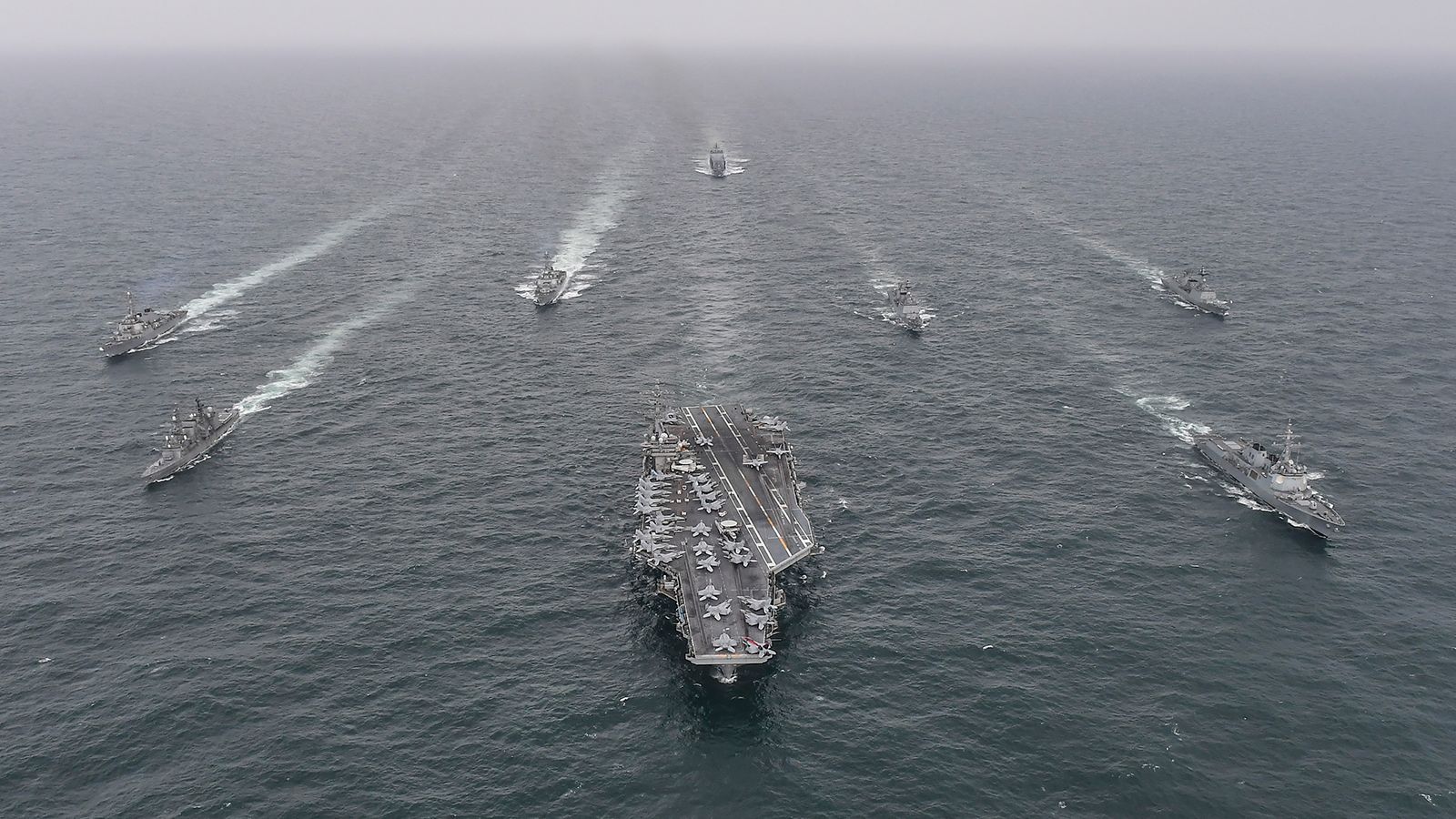
What’s next?
Experts warn that North Korea’s ratcheting up of tensions is likely to continue this year, as Washington continues to boost drills and collaboration with its regional partners to deter Kim.
How to dial down those tensions is open to debate, with some policy experts stressing that this show of strength remains the best deterrence for North Korean aggression.
Others argue that the coalition needs to find ways to minimize the potential for Kim to feel his regime is threatened by their activities – and prevent Pyongyang from drawing closer to Moscow and Beijing as a result.
“Kim Jong Un is wary of a full-scale provocation by the South Korean military disguised as a military exercise and has vowed to occupy South Korean territory without hesitation,” said Lim in Seoul.
“Therefore, if the US, South Korea, and Japan fail to de-escalate the threat from North Korea during joint military exercises, a military conflict could occur on the Korean Peninsula,” he said.
Lee in Washington agreed “an emboldened Kim Jong Un may be more inclined to take military action against what he perceives to be the slightest threat to North Korea, such as joint US-South Korea military exercises.”
In the months ahead, Kim will also be closely watching the upcoming US presidential elections as Trump seeks to win back office.
It’s unclear whether Kim would engage with the former president again were he to be reelected. But experts say Kim is likely hopeful that a newly elected Trump, who has long been dismissive of overseas alliances, would roll back America’s security cooperation with South Korea and Japan – and the North Korean leader could even seek to impact election dynamics with an aggressive move.
One potential could be for Kim to launch Pyongyang’s seventh nuclear test, in what would be the first since 2017, according to Park of Ewha Womans University.
“If North Korea conducts a seventh nuclear test it means a total failure of the Biden administration and gives a very good attack point for Trump (to call Biden) ineffective in dealing with the North Korean leader,” he said.
Further ahead, despite the sweeping changes Kim has now made to his country’s policy toward South Korea, if the North Korean leader sees an opening to advance his larger goals by sitting back down with the South and the US, he could change tack “anytime” – to reverse these changes, Park added.
“This is the kind of behavior (one can expect from) North Korea,” he said.
CNN’s Yoonjung Seo and Brad Lendon contributed reporting.
Correction: A previous version of this story misstated the location of Kyungnam University’s Institute for Far Eastern Studies.


